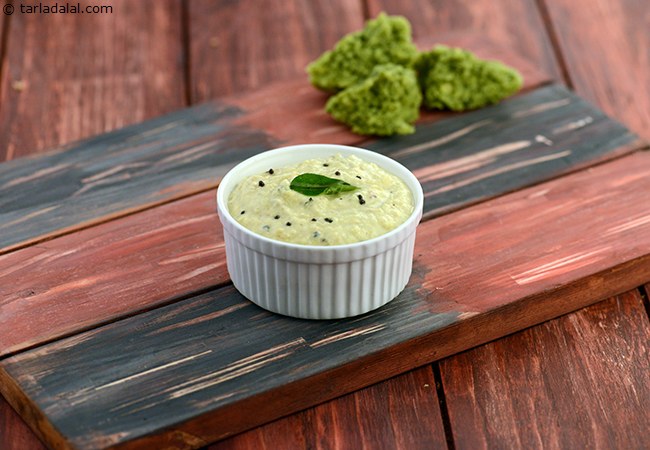How many calories does one Moong Dal Idli have?
One Moong Dal Idli ( 40 grams) gives 47 calories. Out of which carbohydrates comprise 26.4 calories, proteins account for 10.8 calorie and remaining calories come from fat which is 9 calories. One Moong Dal Idli provides about 2.3 percent of the total daily calorie requirement of a standard adult diet of 2,000 calories.
47 calories for 1 idli of Moong Dal Idli, Cholesterol 0.4 mg, Carbohydrates 6.6g, Protein 2.7g, Fat 1g.
See Moong Dal Idli recipe | vegetable moong dal idli | protein rich idli recipe |
Moong Dal Idli — For those how are looking for a quick, nutritious breakfast, these high fiber protein-rich idlis are just what you need! Learn how to make moong dal idli recipe | vegetable moong dal idli | protein rich idli recipe |
Vegetable moong dal idli an easy and healthy alternative breakfast or idli recipe made with green gram lentil. Tt is perhaps one of the easy idli recipes as it is made with just moong dal batter without any urad dal combination.
Moong Dal is a protein rich lentil. We can make soft Idlis out of this healthy pulse. Dal is soaked, ground to thick batter and enhanced with tempering, veggies and eno salt. The batter is then poured into Idli plates and steam cooked for 15 mins to get soft and puffy Moong Dal Idli.
Tips to make moong dal idli: 1. Make sure you serve it immediately because it tends to become dry if kept for long time. 2. After adding eno do not over mix the batter otherwise the idlis will become flat. 3. Make sure to use fresh curd.
Is Moong Dal Idli healthy?
Yes, this is healthy.
Lets understand the ingredients of Moong Dal Idli
What's good in this Moong Dal Idli recipe!
Yellow Moong Dal : The fibre (4.1 g in ¼ cup) present in yellow moong dal prevents the deposition of bad cholesterol (LDL) in the arteries which promotes a healthy heart in turn. Packed with nutrients like zinc (1.4 mg), protein (12.2 mg) and iron (1.95 mg), yellow moong dal helps to maintain the elasticity of your skin and help to keep it moist. Fiber, potassium and magnesium from yellow moong dal will work together to regulate blood pressure and soothe the nerves and is diabetic friendly. See here for details of 7 amazing benefits of yellow moong dal.
Carrots (gajjar) : Carrots have the nutrient Beta Carotene which is a form of Vitamin A, helps prevent deterioration of the eye as one gets older and prevents night blindness. Carrot is great for the eyes.They relieve constipation, lower blood pressure, have fibre and lower cholesterol. Read the 11 super benefiits of carrots and why to include in your daily diet.
Curd + Low fat Curds, hung curds : Curds help in digestion as it has very good bacteria. Probiotics in curds acts as a mild laxative but, in case of diarrhoea and dysentery, it is a boon, if curd is used with rice. Curd is one of the richest sources of protein, calcium and minerals. They help in weight reduction, good for your heart and build immunity. Being low in sodium, it is safe to be eaten by individuals with high blood pressure. The only difference between curds and low fat curds is the fat level. Note that one cup curds gives half cup hung curds. Read the benefits of curds to include in your daily diet.
Can diabetics, heart patients and over weight individuals have Moong Dal Idli ?
Yes, this idli is healthy. yes, since the recipe is devoid of rice. The fibre (4.1 g in ¼ cup) present in yellow moong dal prevents the deposition of bad cholesterol (LDL) in the arteries which promotes a healthy heart in turn.
Can healthy individuals have Moong Dal Idli?
Yes, this is healthy.
What is the healthy option accompaignment for Moong Dal Idli?
Also have this idli with Coconut based options are healthy coconut chutney made from coconut and coriander and coconut coriander green chutney for idlis dosa uttapam vada.

Coconut Chutney
Moong Dal Idli is high in these.
- Folic Acid (Vitamin B9): Folic acid is an essential vitamin required throughout pregnancy.
- Vitamin B1 : Vitamin B1 protects nerves, helps in carbohydrate metabolism, prevents heart diseases and helps produce red blood cells.
- Protein : Protein is required for the managing the wear and tear of all cells of the body.